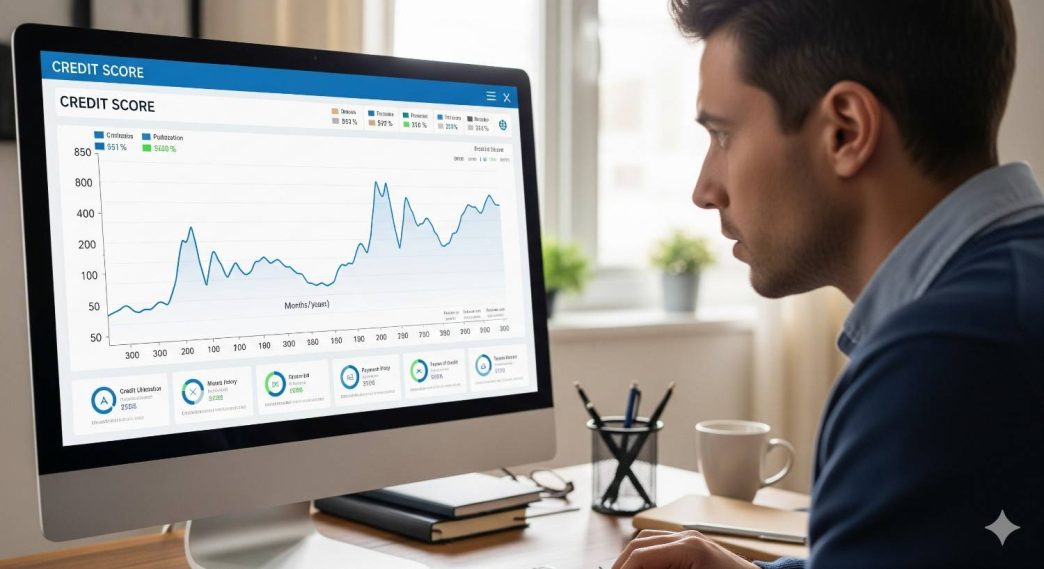Learn proven strategies to improve your credit score quickly in 2026. Step-by-step guide on credit report checks, debt management, payment history, and smart financial planning.
Introduction
In today’s digital era, your credit score has become more than just a number. It is a financial passport that determines how easily you can access loans, credit cards, or even housing. In 2026, as banks and financial institutions adopt stricter lending policies and digital verification systems, a good credit score has become more important than ever.
A low credit score can limit your opportunities, making it harder to get loans approved or forcing you to pay higher interest rates. On the other hand, a high score can unlock better offers, lower interest rates, and long-term financial security. The best part is that you don’t need to wait years to fix your credit. With the right steps, you can improve your credit score quickly and effectively.
This article provides a complete SEO-friendly guide on how to boost your credit score fast in 2026 while avoiding common mistakes.

What is a Credit Score?
A credit score is a three-digit number that reflects your financial credibility. In most countries, it ranges from 300 to 900. The higher your score, the more trustworthy you appear to lenders.
Credit score ranges:
- 750 and above – Excellent
- 700–749 – Good
- 650–699 – Average
- Below 650 – Poor
This score is calculated based on repayment history, outstanding loans, credit utilization, and credit history length. In 2026, with growing fintech integration, credit scores are checked instantly by lenders before approving any financial product.
Why Improving Credit Score is Essential in 2026
1. Easier Loan Approvals
Banks and digital lending apps approve loans faster for people with good credit scores.
2. Lower Interest Rates
High scores mean lower interest rates, saving you thousands in the long run.
3. Better Credit Card Benefits
Premium credit cards with cashback and rewards are usually offered only to individuals with strong scores.
4. Financial Security
A good credit score acts as a safety net during emergencies, giving you access to funds when you need them most.

How to Improve Your Credit Score
1. Check and Monitor Your Credit Report
Start by requesting your credit report from authorized agencies. Look for errors such as duplicate accounts, late payments incorrectly marked, or loans you never took. Dispute these mistakes immediately.
2. Pay All Bills on Time
Your repayment history is the biggest factor in your credit score. Set reminders, use auto-pay features, and never delay payments. Even one missed bill can lower your score significantly.
3. Reduce Credit Card Debt
Keep your credit utilization ratio under 30%. For example, if your card limit is $1,000, spend less than $300. Clearing high-interest debt first will boost your score quickly.
4. Avoid Multiple Loan Applications
Every loan or card application creates a hard inquiry on your credit report. Too many inquiries signal risk and can drop your score. Apply only when necessary.
5. Maintain a Mix of Credit Types
A healthy balance between secured loans (home or auto loan) and unsecured loans (credit cards) shows lenders you can manage different kinds of credit responsibly.
6. Do Not Close Old Accounts
Your oldest credit card builds your credit history. Closing it can shorten your credit age and lower your score. Keep old accounts active with small transactions.
7. Negotiate with Lenders if Struggling
If repayment feels difficult, talk to your bank instead of defaulting. Restructured payment plans or settlements are better than being labeled a defaulter.
8. Request a Higher Credit Limit
If your income has increased, ask for a higher credit limit. This lowers your utilization ratio, provided you don’t overspend.
9. Use Financial Tools and Credit Monitoring Apps
In 2026, fintech apps help track your credit score in real time. Use them to get alerts, repayment reminders, and personalized tips.
10. Stay Consistent and Patient
Credit score improvement doesn’t happen overnight. Stick to good financial habits for at least 3–6 months to see visible progress.

Common Mistakes to Avoid
- Ignoring your credit report and not checking for errors.
- Making only minimum payments on credit cards.
- Closing credit cards too early.
- Applying for too many loans in a short time.
- Overspending after getting a higher credit limit.
Long-Term Strategies for a Strong Credit Score
Improving your score quickly is important, but maintaining it for life is the real goal. Some best practices include:
- Build an emergency fund to avoid dependency on credit.
- Pay off high-interest loans as soon as possible.
- Continue monitoring your score every 3–6 months.
- Live within your means and use credit only when necessary.
FAQs
Q1: How fast can I improve my credit score?
With consistent efforts, improvement can be seen in 3–6 months.
Q2: Can late payments be removed from my credit report?
They can’t be erased, but their impact reduces over time if you maintain good repayment behavior.
Q3: What’s the ideal credit utilization ratio?
Keep it below 30% of your total credit limit.
Q4: Will closing old credit cards improve my score?
No. Closing old cards can reduce your credit history and lower your score.
Q5: Should I save money or repay debt first?
Repaying high-interest debt should be a priority, while simultaneously building a small emergency fund.
Conclusion
Your credit score is not just a financial number; it is a key to unlocking opportunities. In 2026, lenders are stricter and digital systems are more advanced, making it essential to maintain a strong score. By paying bills on time, reducing debt, monitoring your credit report, and avoiding mistakes, you can improve your credit score quickly and ensure long-term financial stability.
The sooner you start, the faster you will see results. A good credit score doesn’t just make borrowing easier — it gives you financial confidence and peace of mind.
Know more related:
Best Cashback Credit Cards India 2025







